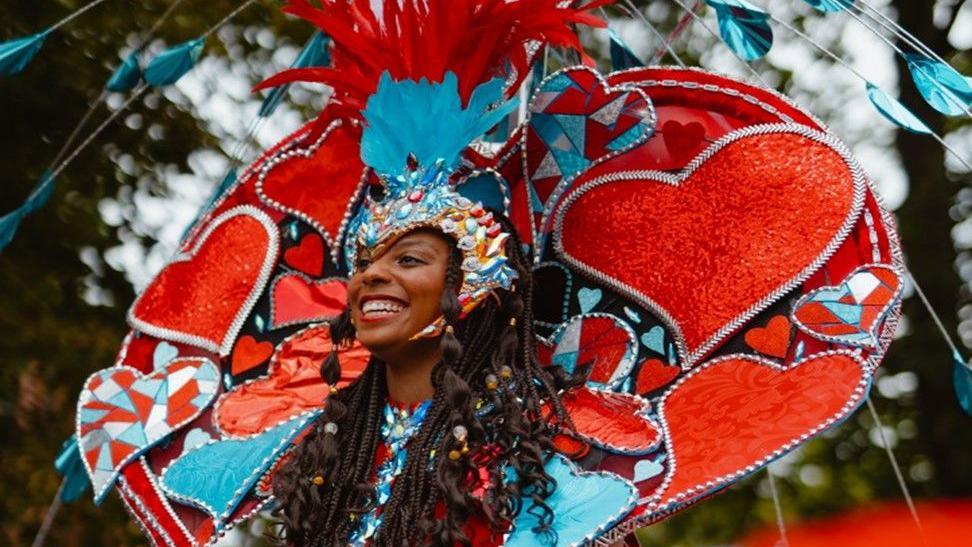Next generation gears up for West Indian Carnival
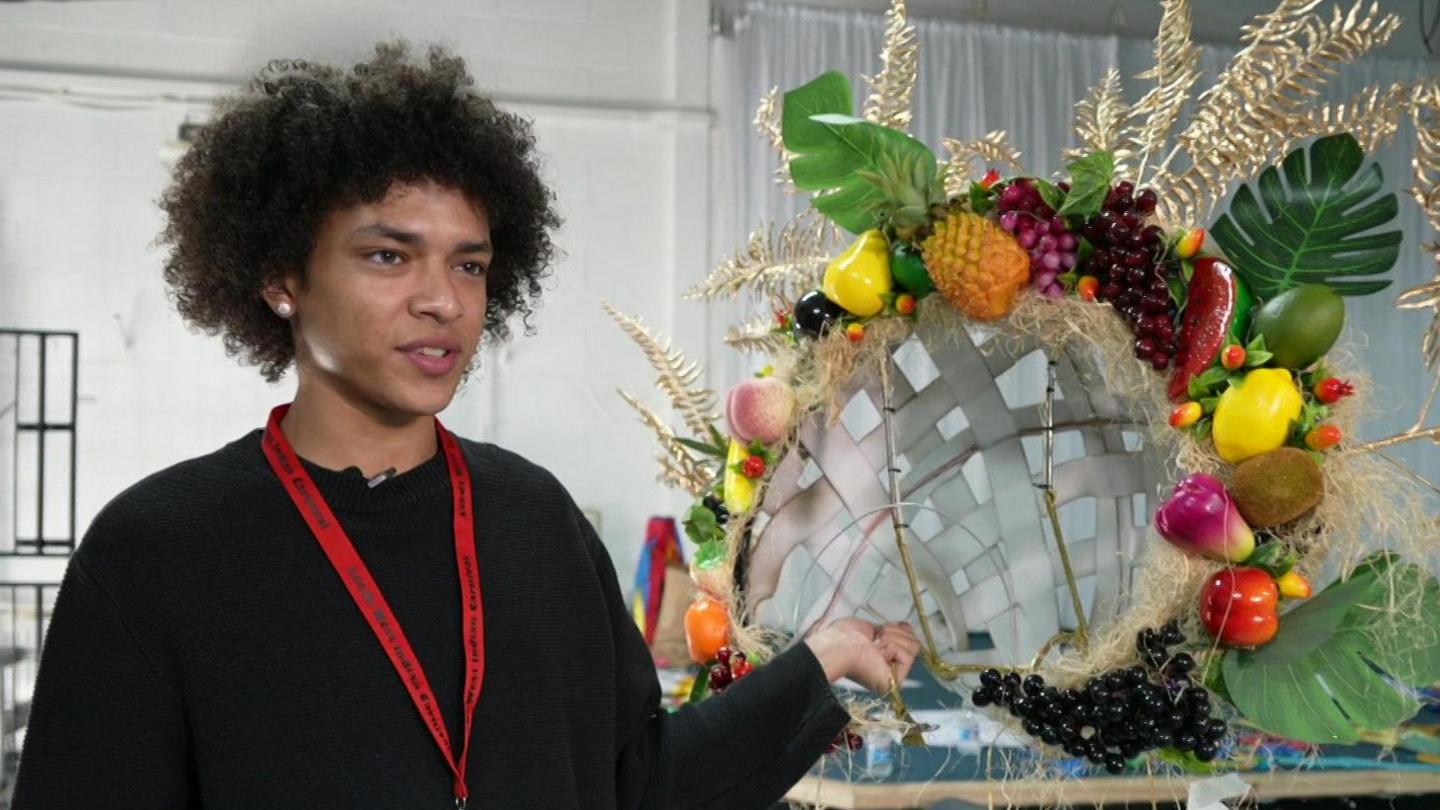
Young people have spent the week before carnival preparing costumes
- Published
Children have been getting "stuck in" with preparations for the Leeds West Indian Carnival, in the hope they will continue the celebrations for years to come.
The Young Masqueraders Summer School has seen youngsters make costumes and learn dance moves ahead of the event on Bank Holiday Monday.
Costume designer and dance teacher Pareesha Valentina Joseph said: "Most of the kids who come here are of Caribbean descent, so it's good for them to learn about Caribbean carnival culture.
"We want to keep getting them involved in carnival, because they are the next generation and we want them to carry it on."
Leeds West Indian Carnival was started in 1967 by Arthur France, when a group from Saint Kitts and Nevis brought the island tradition to their new home in Leeds.
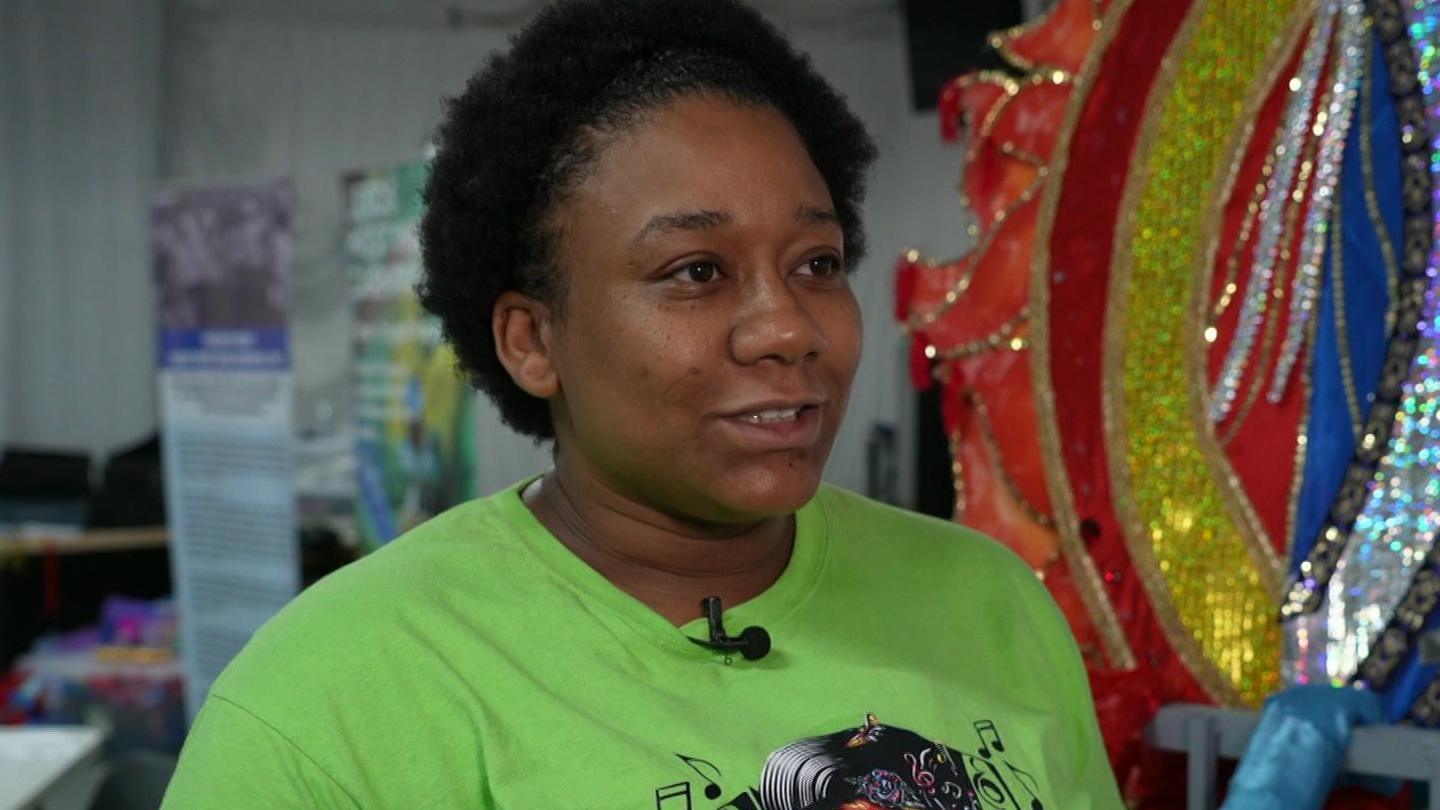
Designer and teacher Pareesha Valentina Joseph has been helping the children learn about their heritage
Sheila Howarth, who is on the board of governors for the carnival, said it was important to share the story behind the carnival, when "all people see is people in the street in feathers and bikinis".
She said: "Carnival started in slavery time.
"One day a year, slave owners would give slaves their own clothes, which were fancy clothes with feathers.
"So slaves would get the clothes and mimic the landowners. So that is part of carnival."
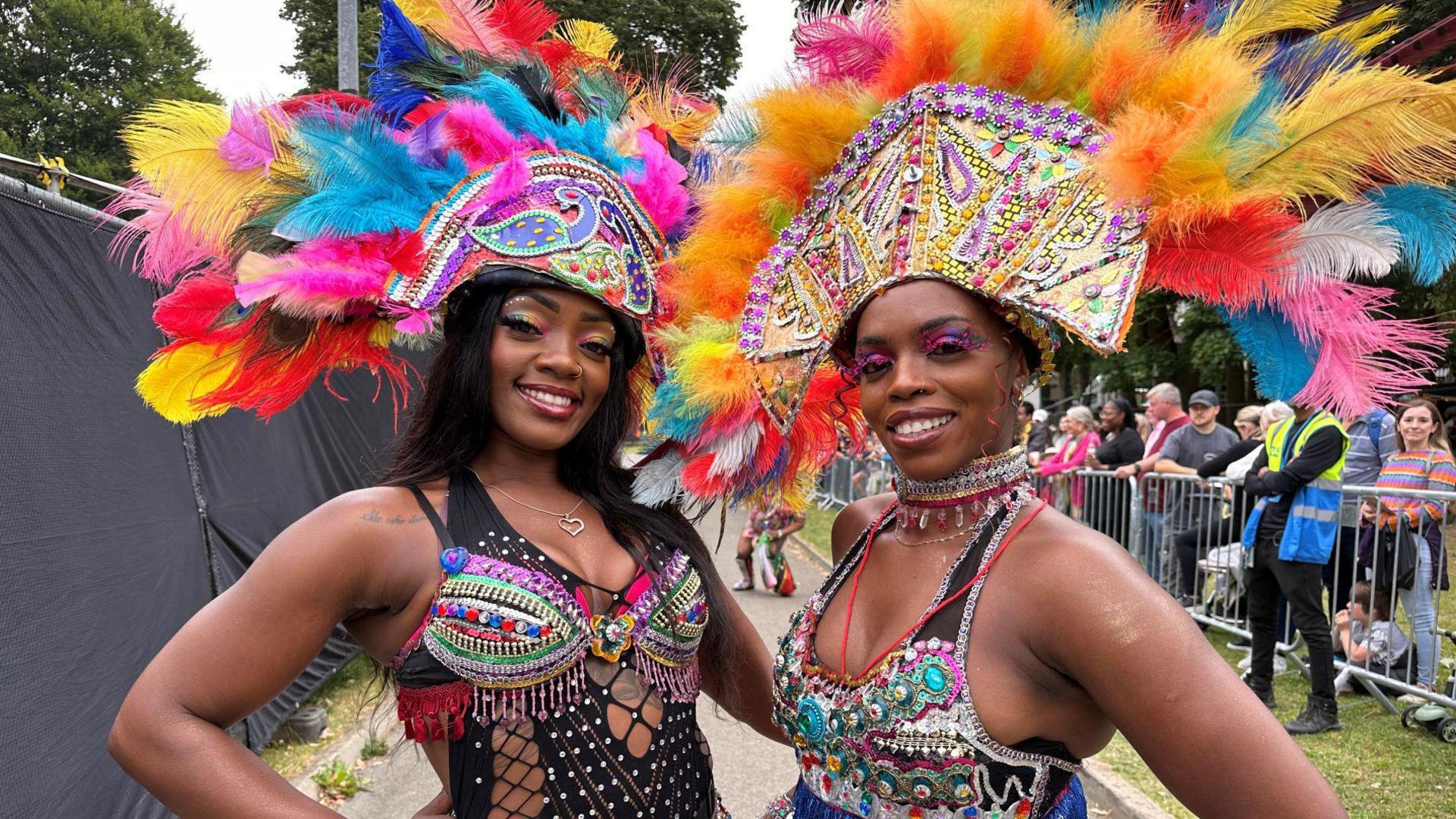
Two of the colourful participants in last year's Leeds West Indian Carnival
Ariya, one of the children taking part in the preparation workshops, will perform in the parade as a princess.
She said the carnival gave her a sense of pride.
"It means a lot to me because it's my first time doing it," she said.
"I come nearly every year. I haven't been picked for it before but my brother has been picked for it before.
"If you win first place it gives you pride and you can believe how good you are."
'Celebration of freedom'
Camilly, who is also joining the parade, said she had been attending carnival since she was born.
"The carnival is a celebration of experiences, past oppression, but also excitement.
"We've come a long way from where we were before.
"The carnival is important because it's a celebration of freedom. It's something where you can meet family you haven't seen in a while."
Ms Joseph said the children had been learning drama, dance and costume making.
"The kids who have taken part in this week are so adorable, they get so stuck in," she said.
"They want to learn more, but they also want to be the teacher - so they've been teaching me some steps that are in the routine."
Trustee Lorina Gumbs said growing up near Potternewton Park, where the carnival takes place, had given her a strong sense of history.
She said: "The feeling you get when you put on that costume, and you see the bright colours, and you're on the road jumping up to the music, it feels so good that you want to share it with everybody.
"The blood, sweat and tears that you put into the costume, you don't appreciate until you see everybody on the road, and costumes and smiley faces, and you think this is worth it, I'll do it again next year.
"It makes it worthwhile."
Get in touch
Tell us which stories we should cover in Yorkshire
Listen to highlights from West Yorkshire on BBC Sounds, catch up with the latest episode of Look North.
Related topics
Related stories
- Published26 August 2024
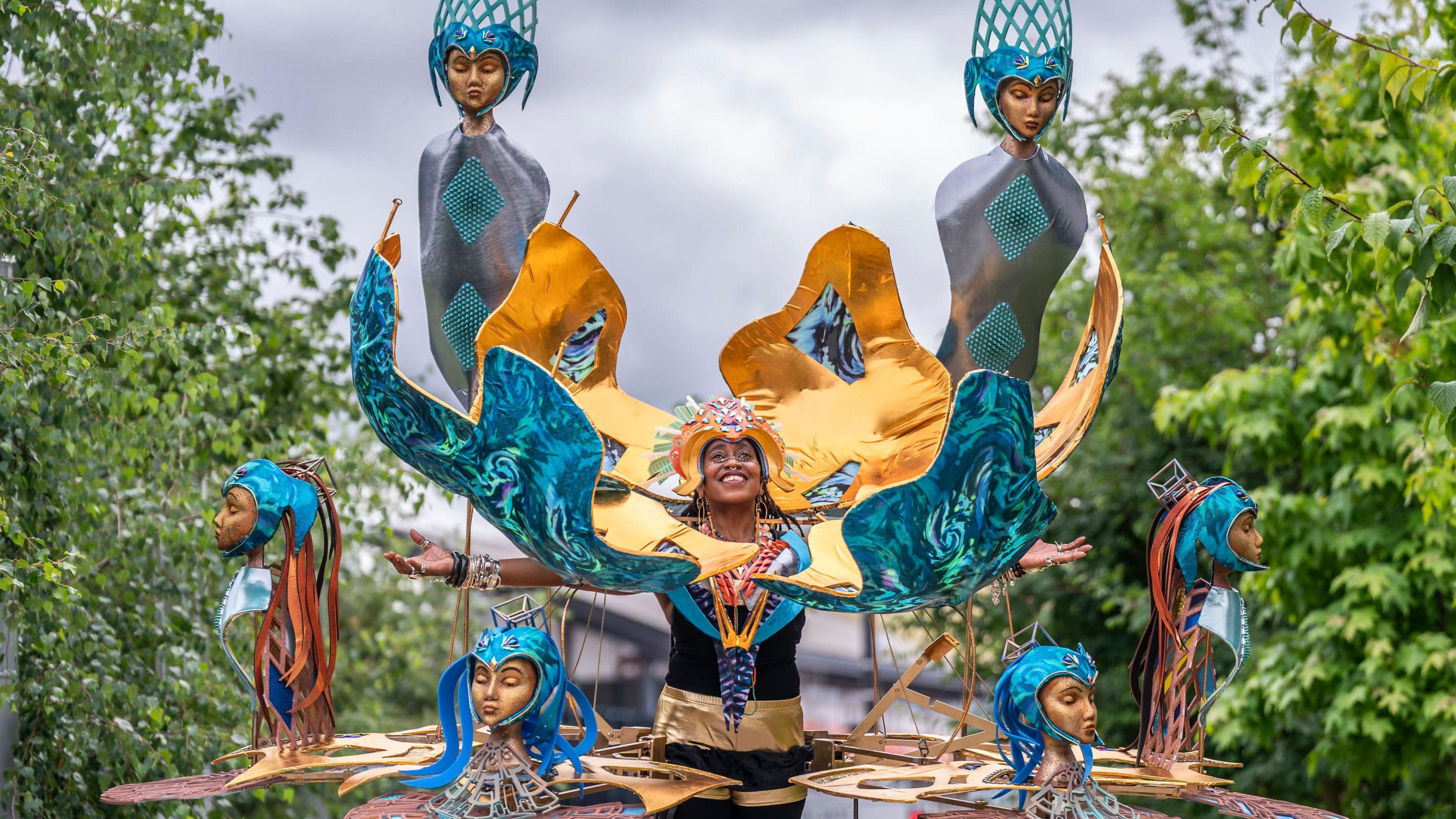
- Published23 August 2024
